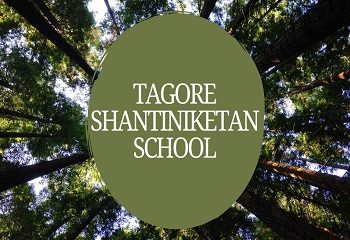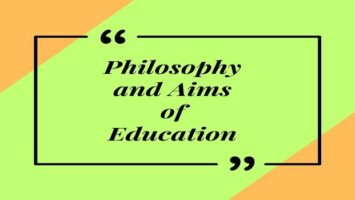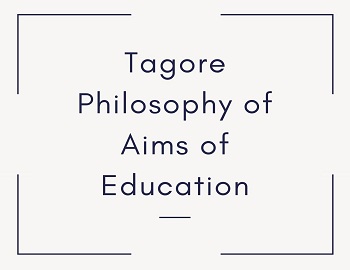Table of Contents
Rabindranath Tagore Shantiniketan School:
The word Shantiniketan means “the abode of peace”. It was here that Rabindranath Tagore gave a practical shape to his educational ideas. There is an atmosphere of joy and freedom, love and peace, sympathy and nobleness of spirit, simple living and high thinking.
Aims of Tagore Shantiniketan School:
- Homely Atmosphere- To provide to the students a homely atmosphere in the school.
- Spiritual Atmosphere- To provide an atmosphere in the school which is pervaded by spiritual greatness as found in the ancient Hindu Ashrams of the Gurus.
- Ancient Indian Culture- To acquaint the students with ancient Indian culture and traditions.
- Simple Living- To emphasize the principle of simple living and high thinking.
- Maximum Freedom- To provide maximum freedom of activity to children and healthy community life.
- Contact with nature- To allow the students to come in contact with nature and get education from it.
With all these basic purposes, Shantiniketan functions like an Ashram with all the simplicity, tranquillity and calm atmosphere. It represents a community where people live in collaboration and strive commonly for the pursuit of excellence.
Special Features of Tagore Shantiniketan School:
- Homely Atmosphere- All the students lead a healthy family life. There are no distinctions of caste, colour or creed. Simple and cheap food is cooked and served in common by the students. Most of the daily services are done by the pupils themselves.
- Spiritual and religious atmosphere- The student gets up at 5 a.m. in the morning. They start their day with a prayer. They move around the tree groves praying to God- “Thou art our Father”. They end their prayer in the same way. There is an intimate relationship between the teacher and the taught. They have great respect for their teachers who try to maintain a highly spiritual atmosphere in the campus.
- Natural Setting- The school is situated in a natural setting. There are open fields, clear blue sky and tree groves. Students come in direct contact with nature while studying. This leads to the spiritual elevations of the pupils.
- Organization of Classes- The classes are organized under huge shady trees. There is a stone sofa of semi-circular shape on which the pupils sit. The classes begin at 6:30 a.m. in the morning with the chirping of birds. Breakfast is at about 8:30 a.m. The regular classes are over by noon. Evenings are devoted to subjects like dancing, music, physical training, and games etc. Social education classes are also organized at nights.
- Self-government- It is a self-sufficient and self-governing republic. Students satisfy most of the wants themselves. They have their own dairy farm, post office and hospital. They themselves organize the activities of these bodies.
- Intimate Contact- There is intimate personal contact between the teacher and the taught. As the limited number of students is admitted everybody comes into intimate contact with his fellows.
- Punishment- Those pupils who create mischief are generally punished in a family spirit. Those who admit their faults are pardoned. Punishments are generally proposed by courts constituted of students. Students Courts and Students Judges decide the punishment.









Comments (No)